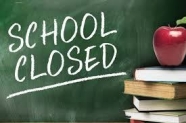Whitmer links Betsy DeVos to upcoming coronavirus stay-at-home order protest; organizers say she’s not involved
Supporters of an upcoming “traffic jam” aimed at protesting Michigan’s stay-at-home order say U.S. Education Secretary Betsy DeVos has no connection to the event after Gov. Gretchen Whitmer said it was “inappropriate” for a sitting Cabinet member to attack her politically.
Whitmer didn’t mention DeVos by name during a Monday press conference, but suggested the West Michigan native was linked to the protest because a group funded in part by members of the DeVos family, the Michigan Freedom Fund, is supporting it.
“I think it’s really inappropriate for a sitting member of the United States President’s cabinet to be waging political attacks on any governor, but obviously on me here at home,” she said. “I think that they should disavow it and encourage people to stay at home and be safe.”
The protest, scheduled for noon Wednesday, was organized by the Michigan Conservative Coalition and also lists the Michigan Freedom Fund as a host. Participants are being asked to stay in their cars and drive around the Michigan Capitol building to start a traffic jam while honking horns and displaying signs or painted vehicles to protest the stay-at-home order.
“We WANT gridlock,” the event description reads.
Nick Wasmiller, a spokesperson for the DeVos family, said the family hasn’t funded the protest and hasn’t offered prior support to the Michigan Conservative Coalition.
“They understand the frustration of fellow Michiganders, however, as elements of the governor’s top-down approach CONTINUE READING: Whitmer links Betsy DeVos to upcoming coronavirus stay-at-home order protest; organizers say she’s not involved - mlive.com


















